Honeysuckle is a plant which is known for its Sweet smell and Did you know it is humming bird’s favorite plant as they love to see it. This has over 180+ other species all over the world and 19-20 are in North America. Their are many variety and today we will talk about various types of honeysuckles. Some did attract butterflies even enjoy its bloom & Some variety are invasive but that doesn’t mean it’s not beautiful. Here I Will Explain Most Popular Honeysuckle where some are quite similar so I will count them as one and you can also choose them by flower color like creamy, peach, pink, red, yellow, white etc.
Before I talk about Types of Honeysuckles, Let me Focus on Most Important thing in honeysuckle. It requires pruning once in a year or twice pruning in spring, otherwise you may have difficulty in trimming them back. There will be a lot of tangled vines. These are not slow growers so you have to do work and don’t worry about pruning them when it is out of control , as they regrow quickly and yes at the same time look gorgeous.
Short Specifications:
| L. sempervirens (Trumpet honeysuckle) | Non Invasive , Sweet Smell , Attract hummingbirds |
| Japanese honeysuckle vine (L. japonica) | Highly Invasive |
| L. periclymenum (common honeysuckle) | Invasive |
| L. ciliosa (orange trumpet honeysuckle) | Attracts Birds |
| L. ×brownii (scarlet trumpet honeysuckle) | Lightly fragrant |
| Lonicera x ‘Freedom (Freedom Honeysuckle) | No Fragnance, Attract bees, birds. |
Types of Honeysuckle
1. Honeysuckle vines
These beauties grow on the fences, doorways and they quite match with the color and height, moreover these vines can reach up to 10 meters(29-30 feet). Make sure not to Take Japanese Honeysuckles(L. Japonica) as they grow invasive and can take over your arbors , fences and gardens. In this case, you will have to work harder in pruning. Here I am Talking about Lonicera Periclymenum & Trumpet honeysuckle which are best to grow and are termed as non invasive by USDA. Trumpet(L. sempervirens) grows in USDA zone 4- 9 and basically in southeast regions.
Here is the variety which is available :
Trumpet Honeysuckle
BUY NOW – CHECK PRICE IN ETSY
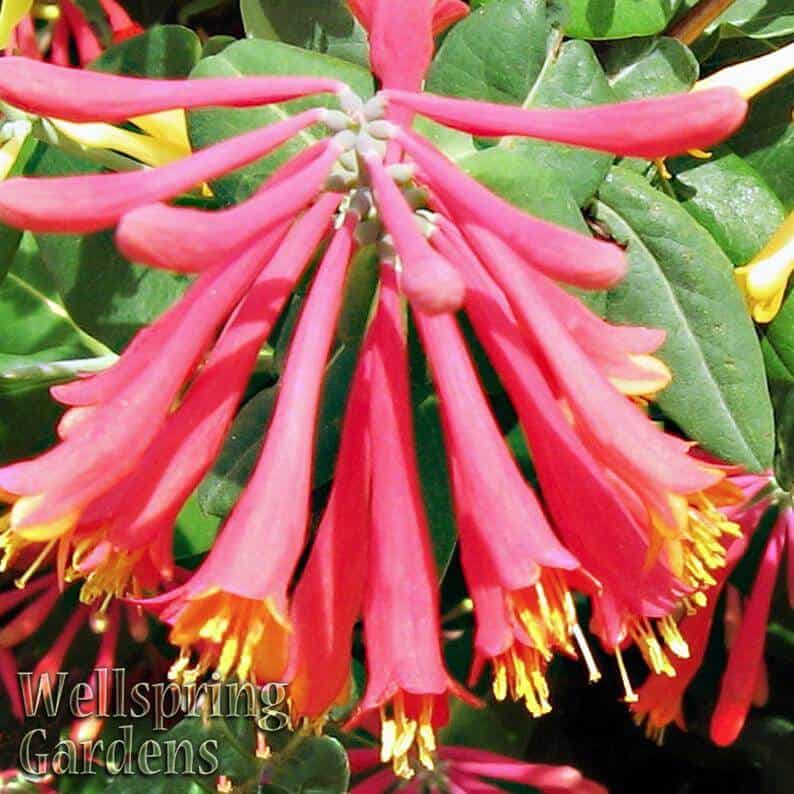
It is advised to carefully select which area you should be planting vines , If you have shrub or tree nearby avoid planting this vines as it grows and strangle the other plants or trees with plenty of vines, again increase your work for pruning , that’s why these vines called by other name as woodbine. All the valuable trees and shrubs should be grown far from these honeysuckles.
2. Honeysuckle Bushes
These Variety are common to North America and they are termed as invasive & growing them is also restricted in many states. These varieties are exactly 5 types and they are grown to a height of 7 to 10 feet high , very long thick green which sometimes make other species hard to pass by these bushes.
You don’t know if it is allowed to grow honeysuckles bushes , that’s why we suggest to go safe and select Serviceberry or Red chokecherry , as these will not affect your garden and give beautiful blooming which eventually makes you happy.
Sakhalin honeysuckle is another bushes variety very similar to others in looks and its temperature tolerance is the same as winter honeysuckle. They grow in USDA hardiness zones 3 to 6 and flower blooms are deep in color. Red flowering appeared to be quite charming.
People who don’t like the fragrance of flowers can choose Freedom Honeysuckle , these plants grow white flowers that have No scent and a blush of pink on its bloom. There is no Odor still they attract birds and bees inside the garden.
3. Dropmore Scarlet Honeysuckle
The Scientific name of this honeysuckle is Lonicera x brownii and this one is hardy to USDA zone 4,5,6,7,8 and 3 as well. These are bloom in spring to fall and very beautiful flower look like trumpet shaped , very eye catchy and attractive. This one has red color berries that ripen when fall comes and birds come to this vine as well. Hummingbirds and butterflies are some which get this plant attention. This plant grows in partial shade or full direct sun.
4. Pink Lemonade Honeysuckle
The Scientific name of this honeysuckle is lonicera x heckrottii, another name would be goldflame. Same as the Graham Thomas , this one also blooms in spring till fall , flowers are seen to be isolated with each other. These vines attract butterflies as well as hummingbirds, It has some fragrance and its vine can easily crawl to fence and arbor. They are hard to USDA zone 4 and 5 or warm zones, these can handle both full sun and partial light or shade also.
5. Graham Thomas Honeysuckle
The USDA hardiness zone for this vine is 4 and this graham Thomas also grows white flowers that become yellow when they get mature. These flowers have tuberous shape and there is no scent on them , but hummingbirds love these plants. Flowering can be seen in the end of spring till the end of fall. These vines thrive in direct sun and can tolerate most conditions of gardens.
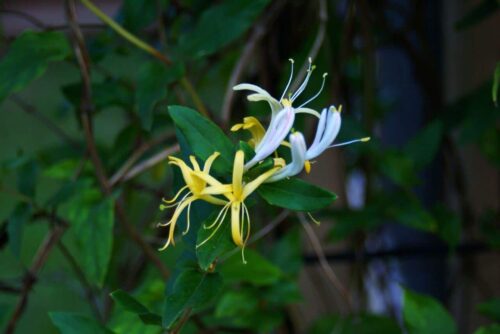

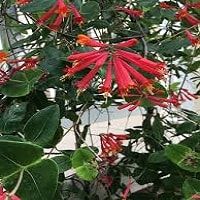

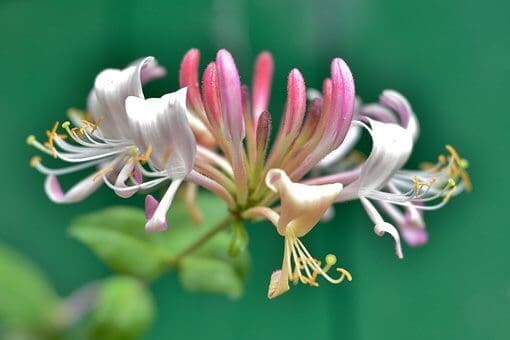
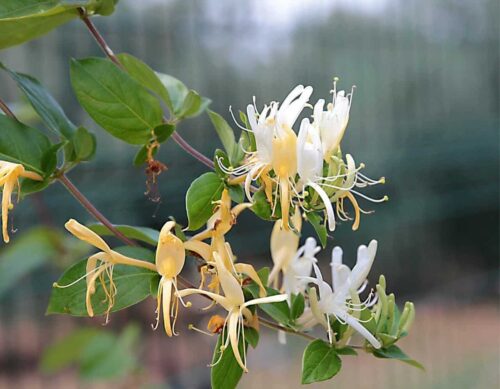
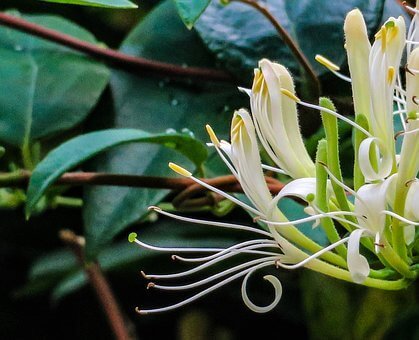
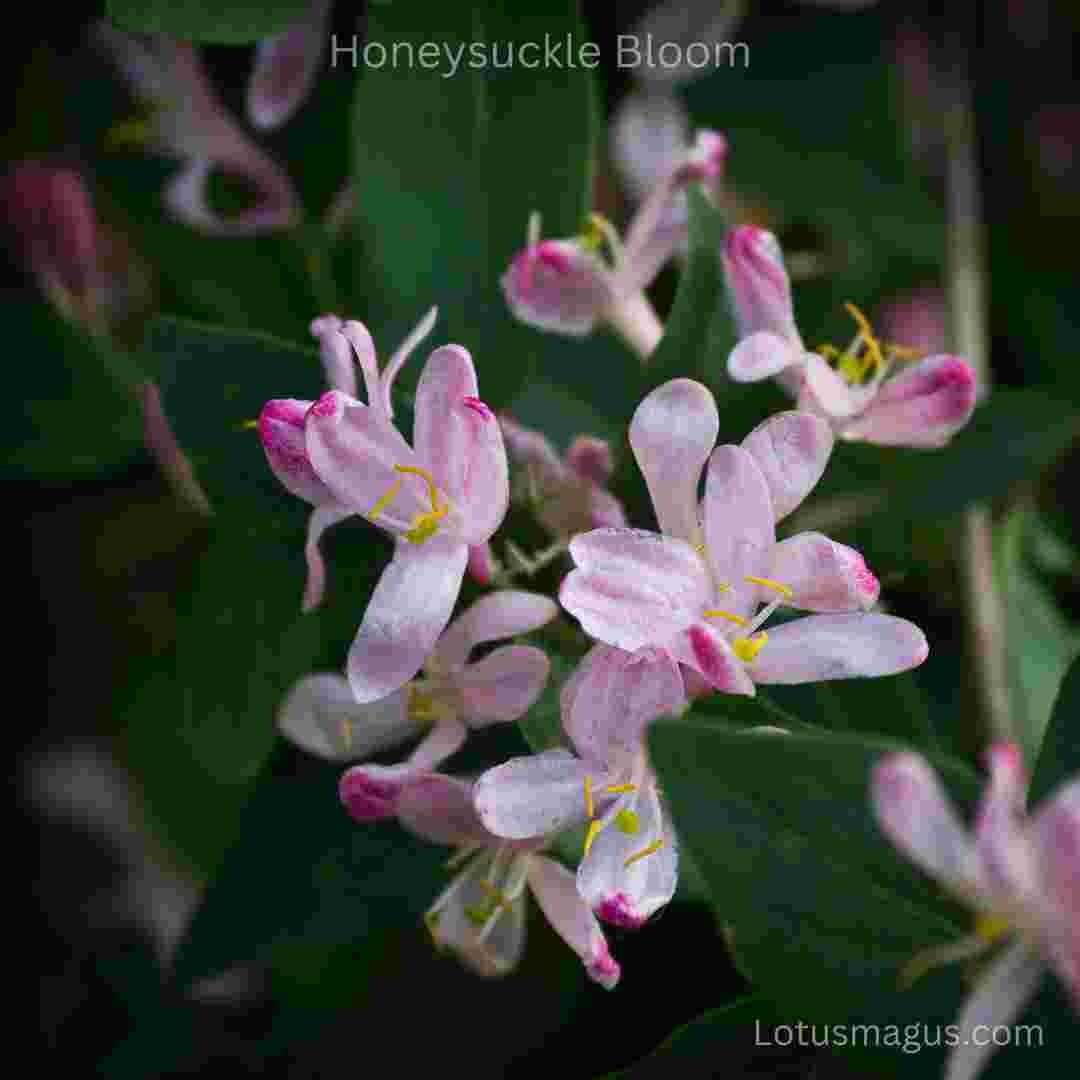
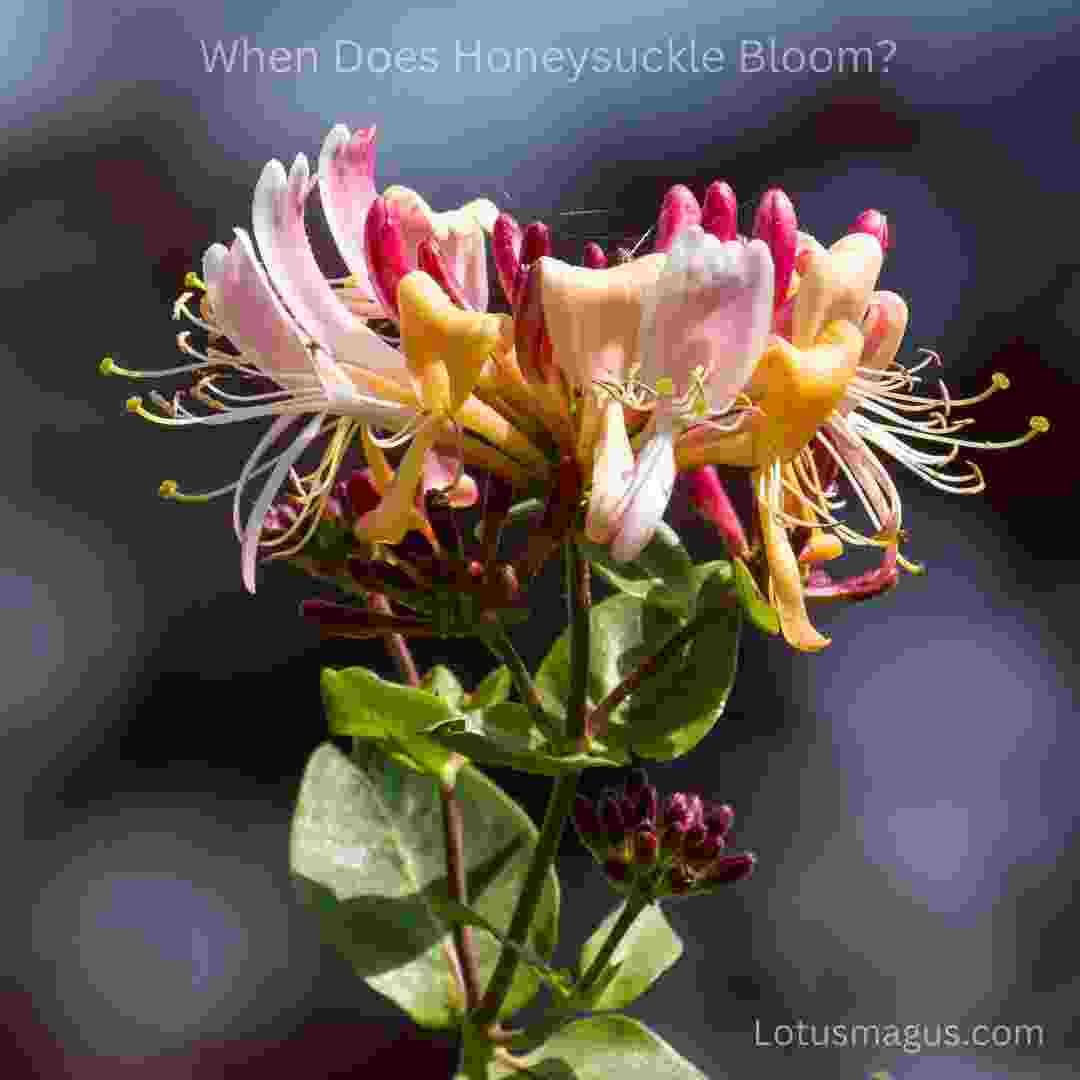
Also Read : Is honeysuckle poisonous to dogs?
